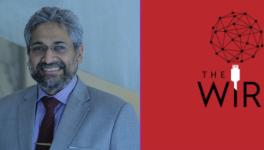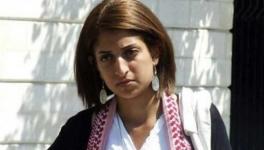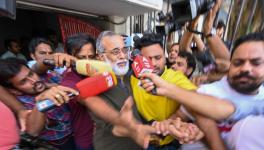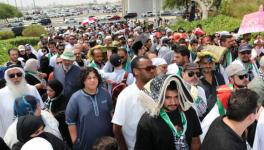Raif Badawi is Free, But World Must Speak Out for Other Jailed Journalists
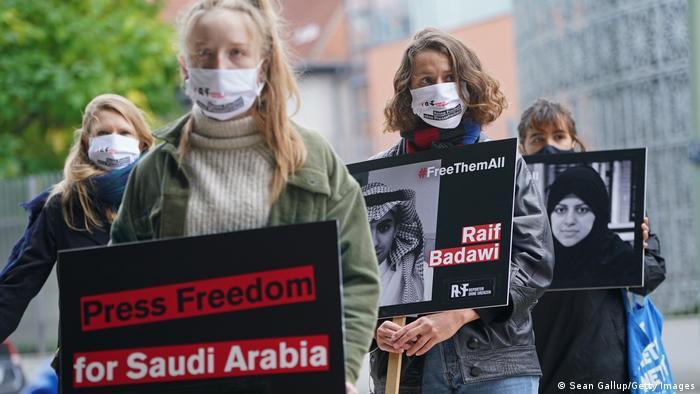
Governments around the world should raise their voices on behalf of all imprisoned journalists, says Justin Shilad
After nearly a decade behind bars, Saudi authorities have finally released Raif Badawi from prison. Badawi, a blogger who used his writings and online forums to advocate for secularism and liberal values, was arrested in June 2012 and sentenced a year later to 10 years in prison and 1,000 lashes. He endured 50 lashes as part of his sentence, but global pressure may have saved him from even more.
While Badawi was in prison, Saudi Arabia witnessed two seemingly contradictory trends. Under the de facto reign of Crown Prince Mohammed bin Salman, Saudi Arabia has turned into one of the top jailers of journalists worldwide and an epicenter of surveillance and spyware technology. The crown prince himself has gained notoriety in 2018 for likely ordering the brutal murder of Jamal Khashoggi, a columnist for The Washington Post.
Yet at the same time, the crown prince escaped any direct penalty from the US government and the international community, and the world has accepted Saudi Arabia under Mohammed bin Salman as an increasingly important actor on the global stage.
Badawi reflected changing views on religion, liberalism
But Badawi's arrest and sentencing came years before bin Salman's ascent to power, and his writing is an example of how independent journalism continues in one of the world's most censored states.
Badawi started an online discussion forum in 2006 where Saudis could discuss politics and religion. By 2008, he had already been detained at least once, yet he continued to develop the forum until it became the Free Saudi Liberals network, with thousands of registered users. Over the next few years, he continued to help run the forum while publishing columns advocating secularism and liberalism in local and regional outlets.
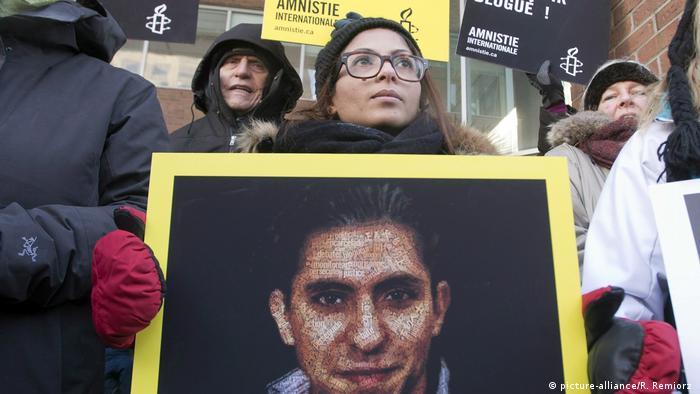
Ensaf Haidar, Badawi's wife, has consistently called for her husband's release
Badawi's writing and work moderating the forums reflected Saudis' changing views on the role of religion and liberalism in Saudi society — a dynamic that Saudi authorities have alternately denied and attempted to take credit for.
A Saudi court responded to Badawi's writings by sentencing him to seven years in prison and 600 lashes — a sentence that was increased on appeal in May 2014 to 10 years in prison, 1,000 lashes, a fine of 1 million Saudi riyal ($267,000/€244,000) and a 10-year travel ban after his prison sentence. Saudi authorities publicly lashed Badawi 50 times in January 2015, but repeatedly postponed the remaining sessions, ostensibly out of concern for his health.
Saudi government sensitive to criticism
But the international outcry after the first round of lashes suggests Saudi authorities are indeed concerned about worldwide public opinion and their global standing. After Khashoggi's murder, the Saudi government responded with ferocity when Canada's Foreign Ministry criticized the arrest of Badawi's sister, Samar Badawi, in 2019.
If the Saudi government's expulsion of the Canadian ambassador in response was meant as a warning to other countries who would criticize the country's rights record, it should also indicate how sensitive they are to criticism.
Raif Badawi may be free, but Saudi authorities continue to impose a travel ban on him and others, subjecting him to another unbearable decade of separation from his family. Meanwhile, the Saudi government continues to enjoy the military support of the US and EU member states, even as other journalists languish in prison in deplorable circumstances. The international condemnation that followed the first round of Badawi's lashings has subsided, as Saudi authorities' violations against journalists multiplied.
Need for continued international pressure
The international community must keep the pressure on Saudi authorities to release all other detained journalists, stop imposing onerous restrictions on those who have been released from jail, end their regime of censorship and surveillance and meaningfully pursue justice for Khashoggi's murder. As horrifying as it was for Badawi to have to endure 50 lashes, there's reason to believe that international pressure kept him from a grimmer fate.
Badawi's release from prison should not signal a return to business as usual with the kingdom — instead, it should be a reminder of the stakes of silence, and the need for continued international pressure.
Over the past three years, the ongoing imprisonment of Saudi journalists and lack of accountability for Khashoggi's murder has drawn an uncomfortable silence from the international community. With Badawi out of jail, governments around the world should raise their voices once again on behalf of all other imprisoned journalists. If he wasn't afraid to speak out, then countries that claim to value free expression shouldn't be afraid to either.
Justin Shilad is a senior researcher on Middle East and North Africa at the Committee to Protect Journalists.
Get the latest reports & analysis with people's perspective on Protests, movements & deep analytical videos, discussions of the current affairs in your Telegram app. Subscribe to NewsClick's Telegram channel & get Real-Time updates on stories, as they get published on our website.










